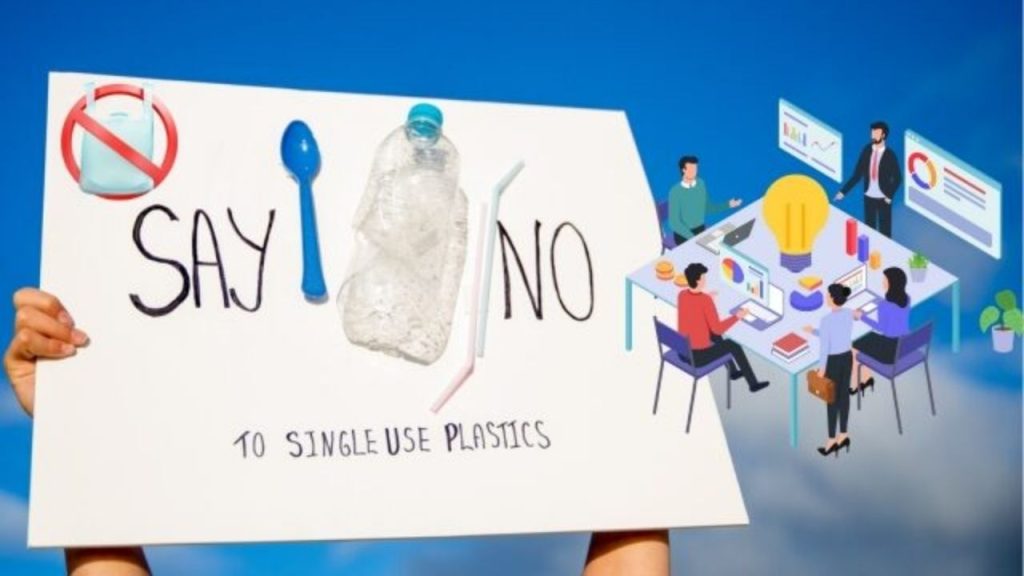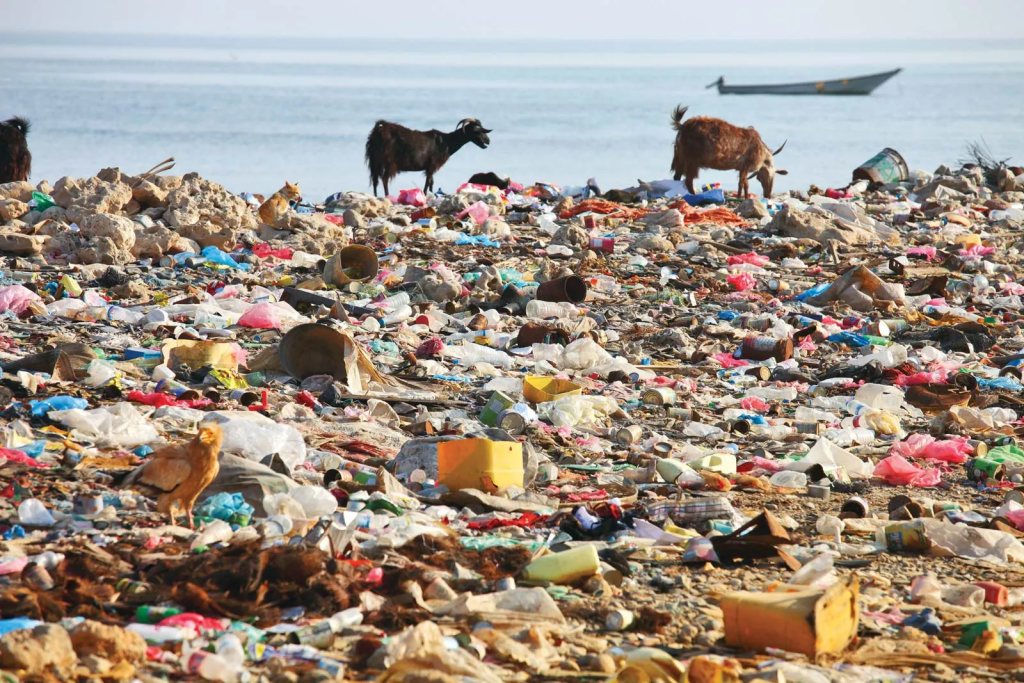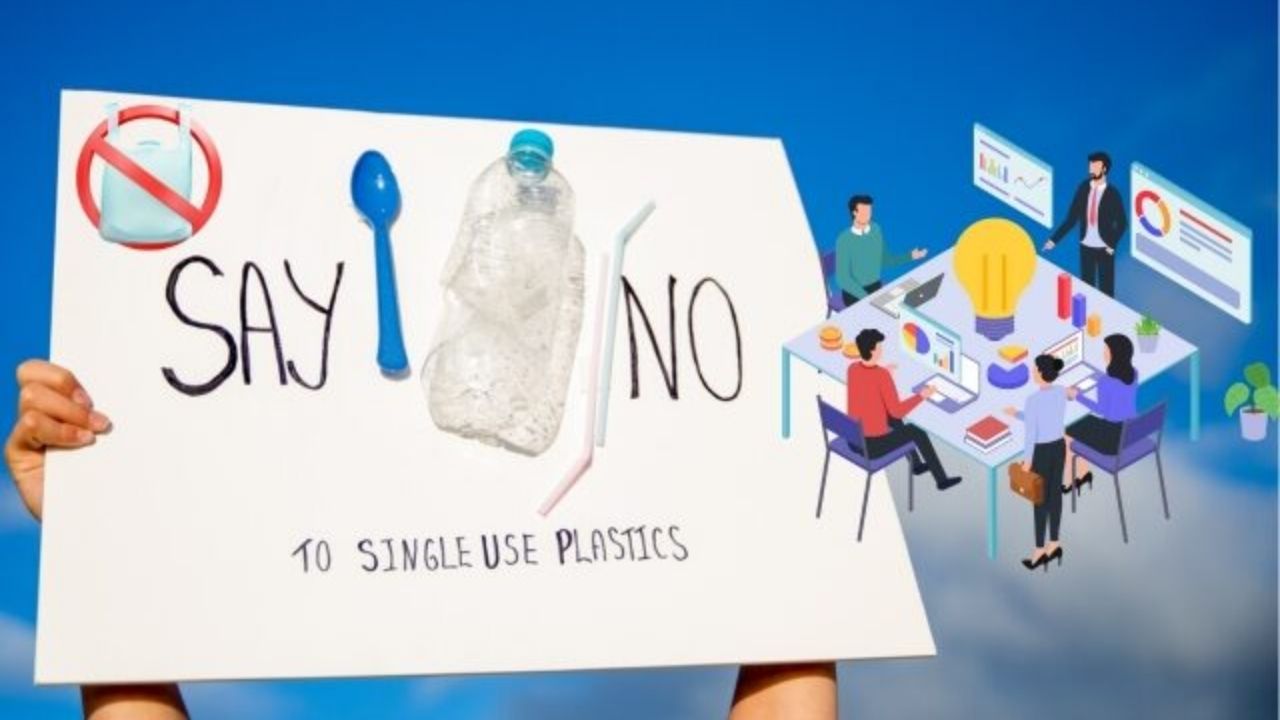In recent years, the issue of plastic pollution has become a global crisis, with governments, organizations, and individuals looking for ways to reduce their reliance on single-use plastics. One of the most progressive steps in combating this problem has been taken by the Indian state of Odisha. On July 31, 2025, Odisha issued a bold decree to ban the use of single-use plastics across all government offices, including autonomous bodies and state-run public sector undertakings (PSUs). This groundbreaking move is part of a larger effort to address the growing plastic pollution problem that affects both the environment and public health.

In this article, we’ll break down what this ban means, why it’s important, how it’s being enforced, and the potential long-term impact on both local communities and global efforts to curb plastic waste.
Ban on Single-Use Plastics in Government Offices
| Key Information | Details |
|---|---|
| Date of Ban Announcement | July 31, 2025 |
| Target Audience | All government offices, autonomous bodies, and PSUs |
| Types of Plastic Banned | Plastic water bottles, plastic cutlery, polythene carry bags, etc. |
| Alternative Materials Suggested | Steel, glass, bamboo, cloth, jute, paper-based products |
| Enforcement Measures | Strict monitoring, penalties for violations |
| Government’s Previous Initiatives | State-level plastic bans since 2019, National ban in July 2022 |
| Official Source | Sambad English |
The ban on single-use plastics in government offices is a significant step towards reducing plastic pollution in Odisha. It not only demonstrates the state’s commitment to environmental sustainability but also sets an example for others to follow. With clear guidelines, a focus on reusable materials, and strict enforcement, the initiative has the potential to make a lasting impact.
By embracing alternatives and leading the charge in adopting sustainable practices, Odisha is showing how local actions can contribute to global environmental goals. This ban is just the beginning, and with continued dedication, we can expect to see a greener, cleaner future for both Odisha and the planet.
Why Is the Ban Important?
Plastic pollution is a silent but ever-growing threat that harms wildlife, pollutes our oceans, and contributes to climate change. The materials used in single-use plastics take hundreds of years to break down, with much of it ending up in landfills or water bodies. In Odisha, where a considerable portion of plastic waste is dumped in urban areas and picnic spots, this ban seeks to address these pressing issues head-on.
But this isn’t just about protecting the environment. It’s about leading by example. By banning single-use plastics in government offices, Odisha is encouraging both citizens and businesses to reconsider their plastic consumption habits. In fact, the ban could serve as a stepping stone toward widespread behavior change, leading to a cleaner, greener future for the state and beyond.

Contextual Information on Odisha’s Plastic Problem
Odisha, like many other states across India, faces an ongoing struggle with plastic waste. In 2019, the state government banned single-use plastics in urban areas. However, the usage of plastics remained rampant due to a lack of enforcement and widespread public awareness. The Indian government also took a nationwide stance in 2022, banning single-use plastics on a larger scale. But despite these efforts, the challenge of reducing plastic consumption remains significant.
This new ban on single-use plastics in government offices represents a more aggressive approach to tackling this issue. It reflects a growing awareness of the environmental damage caused by plastic pollution, and a stronger resolve to change. Moreover, government offices consume large amounts of plastic products—making them an ideal setting for this shift.
A Breakdown of What’s Banned
The Odisha government has been very specific in its guidelines. The ban includes the following items:
- Plastic Water Bottles: These are commonly used in meetings, workshops, and conferences. From now on, employees will be required to use alternatives like steel, copper, glass, bamboo, or earthenware bottles.
- Plastic Cutlery and Containers: Items like plastic plates, cups, spoons, forks, and thermocol trays will no longer be allowed. Offices are encouraged to switch to steel, brass, glass, or plant-based materials.
- Polythene Carry Bags: Plastic bags for carrying office materials are now prohibited. Jute, cloth, or paper-based bags are recommended as substitutes.
- Plastic-Wrapped Gifts and Bouquets: No more gifting items wrapped in plastic. Alternatives like paper-based wrapping will be encouraged to make the gifting process more eco-friendly.
Example of How This Works in Practice
Imagine you’re attending a government workshop in Odisha. You walk into a conference room expecting a plastic water bottle on the table. However, when you sit down, you notice a shiny steel bottle beside you instead. This is part of the broader shift that the Odisha government aims to create within its administrative setup. The same goes for the lunch or tea break – no more plastic cutlery, just eco-friendly, reusable alternatives.
These kinds of changes might seem small, but they add up over time. And with government offices leading by example, it’s hoped that businesses, schools, and citizens will follow suit.
Enforcement and Monitoring: Ensuring Compliance
Of course, a ban is only effective if it’s properly enforced. The Odisha government has implemented strict monitoring measures to ensure compliance. Departments will be responsible for ensuring that no single-use plastics are being used within their offices.
Violations will lead to corrective actions, including penalties for non-compliance. The state has also provided guidelines for alternative products and ways to make the transition as smooth as possible.
Local authorities and environmental agencies are expected to play a significant role in overseeing these regulations. Moreover, the government will be conducting regular checks to ensure that all state-run offices are adhering to the new rules.
How This Fits into Odisha’s Larger Environmental Strategy
The plastic ban is just one component of a broader, long-term environmental strategy in Odisha. Since 2019, the state has been actively working to reduce plastic consumption in urban areas. These efforts have included a public awareness campaign and the promotion of plastic alternatives in markets and public spaces.
Additionally, Odisha has been a key player in the national campaign against plastic waste. The Indian government implemented a nationwide ban on single-use plastics in 2022, and Odisha’s move aligns with this larger goal. However, it’s the government offices that will serve as the most direct and visible examples of how the state plans to meet these environmental goals.
The state government’s action also demonstrates how the local level can lead in addressing global challenges, further underscoring Odisha’s role as a model for other states in India.
Practical Advice for Making the Transition
As the ban rolls out, both employees and office suppliers may have questions. Here are some practical tips for smooth implementation:
- Stock Up on Reusable Alternatives: Invest in high-quality reusable bottles, plates, and cutlery. Consider stainless steel or bamboo options, which are not only durable but also eco-friendly.
- Educate Employees: Ensure all employees understand the importance of this change. Organize workshops or information sessions to discuss the reasons behind the ban and the benefits of using sustainable alternatives.
- Switch to Sustainable Packaging: If your office supplies or gifts require wrapping, choose paper-based products or even cloth wraps as alternatives to plastic.
- Lead by Example: Managers and senior officials should set the tone by being the first to adopt sustainable practices. This trickles down to employees, encouraging them to do the same.
- Monitor and Report Violations: Establish a system to monitor compliance within your office. If violations occur, report them so that corrective measures can be taken.
Malkangiri Leads in Fuel Prices Across Odisha; Twin Cities Show Moderate Rates
Crime Branch Uncovers OTET-2025 Question Paper Leak; Six Arrested in Odisha
Centre Highlights Positive Growth in Priority Sector Lending in Rural Odisha
FAQ
What is single-use plastic?
Single-use plastic refers to plastic products that are used once and then discarded, such as plastic water bottles, plastic bags, cutlery, and straws. These products are major contributors to plastic pollution.
Why has Odisha banned single-use plastics in government offices?
Odisha has banned single-use plastics in government offices to reduce plastic pollution, protect the environment, and set an example for citizens and businesses in the state.
What are the alternatives to single-use plastics?
The Odisha government recommends using materials like steel, glass, bamboo, jute, and paper-based products as alternatives to single-use plastics.
How will the ban be enforced?
The Odisha government will implement strict monitoring and corrective actions to ensure compliance. Departments are responsible for following the ban and reporting violations.
How does this ban contribute to the larger fight against plastic pollution?
This ban is part of a broader environmental initiative to reduce plastic waste. By setting an example in government offices, Odisha hopes to influence businesses and citizens to reduce their plastic consumption as well.





